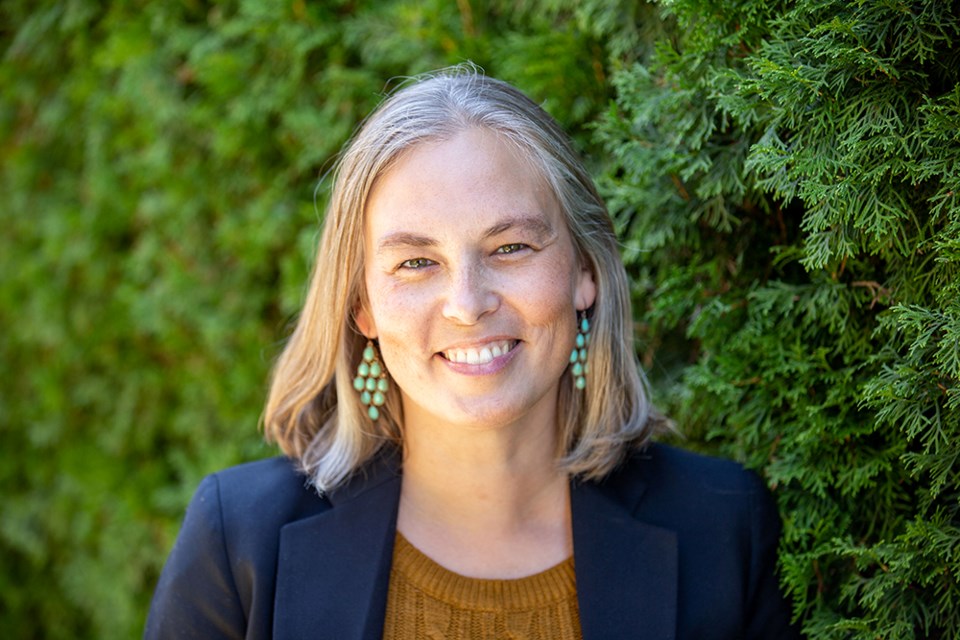The 2024 Union of BC Municipalities (UBMC) Convention wrapped up on September 20 in Vancouver after five days of workshops and passing resolutions, in order for local governments and First Nations to establish policy and engage with provincial leaders on pressing issues facing communities across BC.
Common municipal concerns
Not surprisingly, housing supply and homelessness, public safety, infrastructure deficits, climate resilience and mental health concerns in local politics were common concerns for most municipalities.
City of Powell River councillor Trina Isakson spoke to the Peak about her personal experience at the convention, not on behalf of city council.
"[UBCM] council had two ministerial meetings; those are always a highlight, because we get to connect with [provincial] ministers," said Isakson. "It's also helpful to connect with senior staff, and for them to understand our concerns and what's going on in Powell River is really helpful."
Better collaboration between stakeholders
On September 16, there was a province-wide community to community forum co-hosted by UBCM and the First Nations Leadership Council meant to foster better collaboration between local government leaders and senior staff.
"I would say the other highlight is to get to meet people on council and regional district boards and [First] Nations from around the province who are facing some similar challenges that we are in Powell River," said Isakson. "Also, learning what they're working on, what the scale of their challenges are, how they're working on those challenges and being with peers who understand the job."
Resolutions passed
One of the main functions of the convention is to pass resolutions. At the 2024 UBCM, a total of 267 resolutions were put forward, a 25 per cent increase over last year, according to the Report of the 2024 Resolutions Committee.
Province needs to play stronger role
"I would definitely say a common refrain is every community is dealing with challenges that no one entity can solve right," said Isakson. "Municipalities haven't historically had a responsibility to work on things like housing and homelessness, like addiction and substance use."
Isakson said active transportation, lighthouses (those who work on them) and port security were also pressing issues brought up at convention meetings.
"As a collective we're asking for the province, or sometimes the federal government, to play a stronger role and make sure they're fulfilling their responsibilities," said Isakson. "There's definitely a common refrain about wanting the provincial government, in particular, to fully fund the responsibilities in our communities that are not historically the responsibility of municipalities."
Committed funding needed
Premier David Eby spoke at the convention on September 19, answering questions from UBCM president Trish Mandewo and delegates regarding public safety, housing and infrastructure funding, according to the convention website. One of the major thorns in the side of municipalities is the reliance on property tax to fund municipal services.
"UBCM is calling on the province to commit to an annual transfer of a percentage of the Provincial Property Transfer Tax to support local efforts in subsidizing affordable housing supply and homelessness responses, and $650 million annually to be delivered directly to communities for local infrastructure," according the resolution.
Isakson said she would like to find out more from community leaders who are focusing on what are called natural assets, to deal with infrastructure issues.
Using natural assets
"For example, rather than relying on a wastewater treatment facility to process stormwater, they are using natural assets like wetlands and gravel beds and other other parts of the natural environment to cope with things like water runoff or stormwater," said Isakson. "I know, for example, Gibsons has a really strong approach, but I heard from other municipalities that are also taking that approach."
Look to other communities for guidance
One community Isakson said Powell River should have its eye on is Port Alberni, because of its similarities of transitioning from a resource economy to something else, such as tourism.
"The success they've had in developing their waterfront has come up," said Isakson. "The mayor of Port Alberni and the heads of two First Nations in that region talked about the collaborations they went through in order to develop that waterfront and for future plans for the waterfront, and what it took to get there."
Planning for the future
Two sites in the qathet region where collaboration between multiple stakeholders is necessary to move forward are the city’s Downtown Plan, which endeavours to create more vibrant Marine and Willingdon avenues, and connect the two Westview waterfront areas together. There is also the former mill site in Townsite, which has a Memorandum of Understanding between the province and Tla’amin that sets out environmental protection, economic opportunity and a path to Tla’amin ownership of Tis’kwat.
"Resolutions and the election of the executive in UBCM are the main reason for us gathering for the annual convention,” said Isakson, “and for us to indicate to the province in particular, what the priorities of governments are.”
Join the Peak’s email list for the top headlines right in your inbox Monday to Friday.




